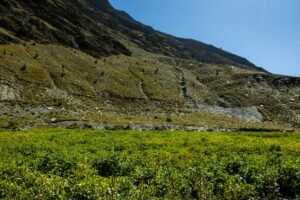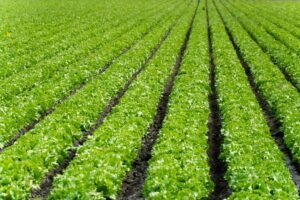As California continues to lead the nation in agricultural innovation, sustainable farming has become more than just a trend—it’s a necessity. Farmers are adopting eco-friendly techniques to reduce environmental impact, improve soil health, and ensure long-term productivity. However, sustainable farming practices also bring new challenges and financial risks. From unpredictable weather to evolving regulations and higher upfront costs, maintaining a sustainable farm requires strategic risk management. This is where insurance plays a vital role. Agricultural insurance not only protects against potential losses but also supports the growth and resilience of sustainable farming operations across California.
Why Sustainability and Risk Management Go Hand in Hand
Sustainable farming is built on long-term thinking—balancing profitability with environmental responsibility. Yet, this approach often exposes farmers to greater short-term risks. Drought, wildfire, pest infestations, and extreme weather events can quickly disrupt even the most carefully managed sustainable systems. With California’s increasing climate volatility, insurance becomes an essential safeguard that enables farmers to pursue eco-friendly practices without jeopardizing their financial stability.
By transferring risk to insurance providers, sustainable farmers can experiment with innovative practices—such as crop rotation, regenerative soil management, and organic production—while knowing they have financial protection if yields or equipment are affected. This partnership between sustainability and insurance strengthens the overall resilience of the agricultural industry.
Supporting the Transition to Sustainable Farming
Transitioning from conventional farming to sustainable operations often requires significant investment. Farmers may need to purchase new machinery, upgrade irrigation systems, or adopt alternative energy sources such as solar panels. These changes improve efficiency and reduce environmental harm but also increase the value of farm assets that need protection. Property insurance and equipment breakdown coverage ensure that these critical assets are safeguarded against fire, mechanical failure, or other damages.
Crop insurance also plays a key role in supporting sustainable practices. Organic and regenerative farms sometimes face reduced yields during the initial transition period as the soil adjusts to new cultivation methods. Crop insurance helps offset potential income losses during these phases, allowing farmers to remain financially viable while implementing sustainable improvements.
Climate Resilience Through Insurance Protection
California’s farmers face increasing threats from climate change—droughts, floods, and wildfires can devastate crops and livestock within hours. Insurance provides a financial buffer that helps farms recover quickly and continue operating. For example, multi-peril crop insurance protects against a range of climate-related events, while drought-specific or flood insurance provides targeted relief.
Sustainable farmers who rely on diverse crop systems or eco-friendly irrigation methods can also benefit from customized insurance policies. These tailored coverages are designed to account for unique risks and ensure that environmentally conscious operations aren’t penalized for adopting progressive techniques.
Encouraging Responsible Farming Practices
Insurance doesn’t just protect farmers—it encourages responsibility. Many insurers offer premium discounts or incentives for farms that implement risk-reducing measures, such as soil conservation programs, fire prevention plans, or water management systems. By rewarding sustainable actions, insurance companies promote practices that protect both the environment and the farmer’s bottom line.
Liability coverage is another essential element for sustainable farms, particularly those that engage directly with the public through agritourism or organic produce sales. This coverage shields farmers from financial loss if someone is injured on their property or if products cause illness or damage. Such protection allows sustainable farmers to operate confidently while maintaining transparency and trust with their customers.
The Role of Insurance in Long-Term Sustainability
Sustainable farming isn’t just about growing crops—it’s about building a future for agriculture that can withstand environmental and economic shifts. Insurance acts as a safety net that ensures continuity, stability, and confidence in farming operations. Whether it’s replacing damaged equipment, covering lost crops, or managing liability claims, insurance helps farmers stay focused on their mission to cultivate responsibly and sustainably.
Moreover, having comprehensive insurance can also attract investors and lenders who are increasingly interested in supporting environmentally responsible businesses. Demonstrating that your farm is well-protected against risks builds credibility and enhances financial opportunities for expansion or diversification.
Conclusion
Insurance is a cornerstone of sustainable farming success. It provides California farmers with the confidence to innovate, invest in eco-friendly practices, and adapt to changing climates without fearing devastating losses. As sustainability becomes an integral part of modern agriculture, insurance serves as both a shield and a partner—protecting farms while promoting responsible growth.
To explore insurance options that align with your sustainable farming goals, visit Western Insurance







